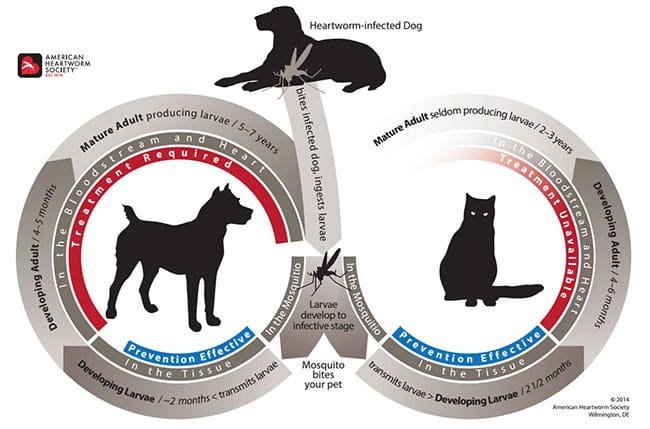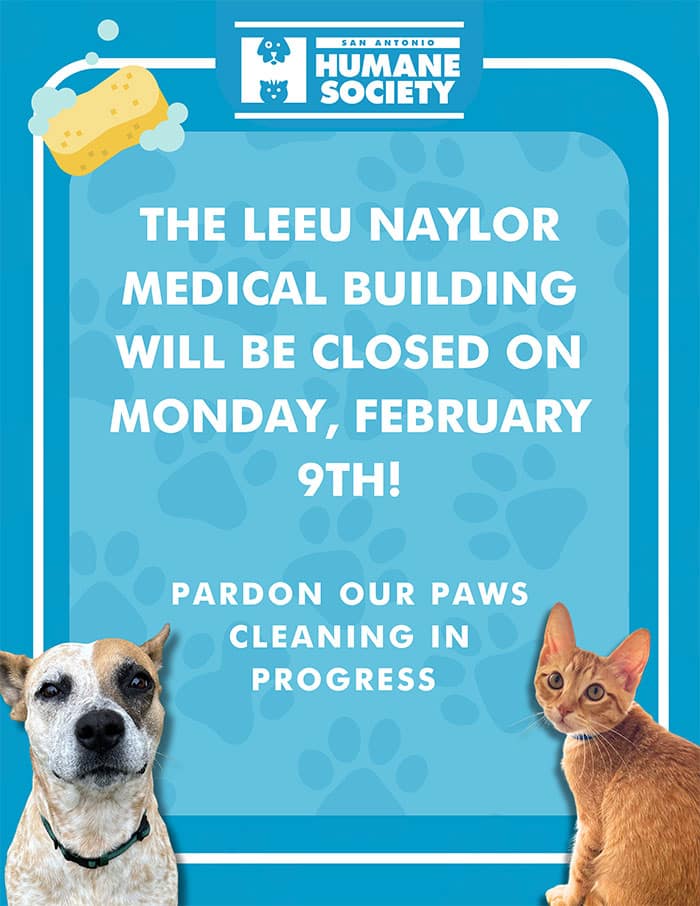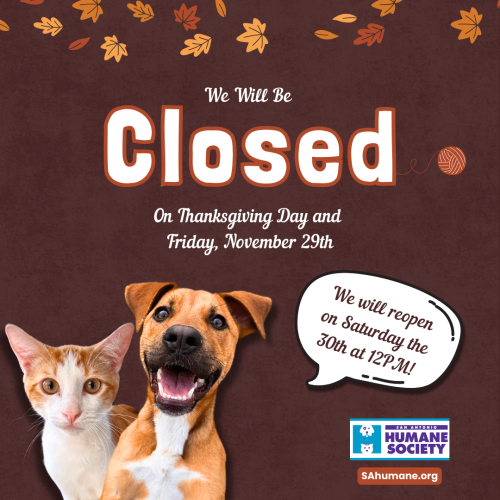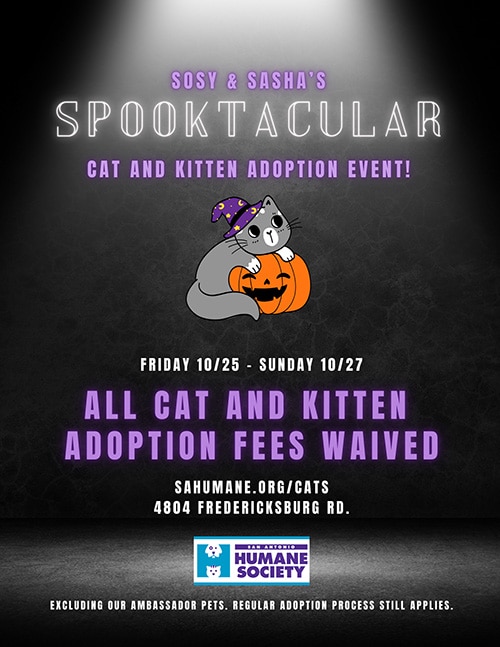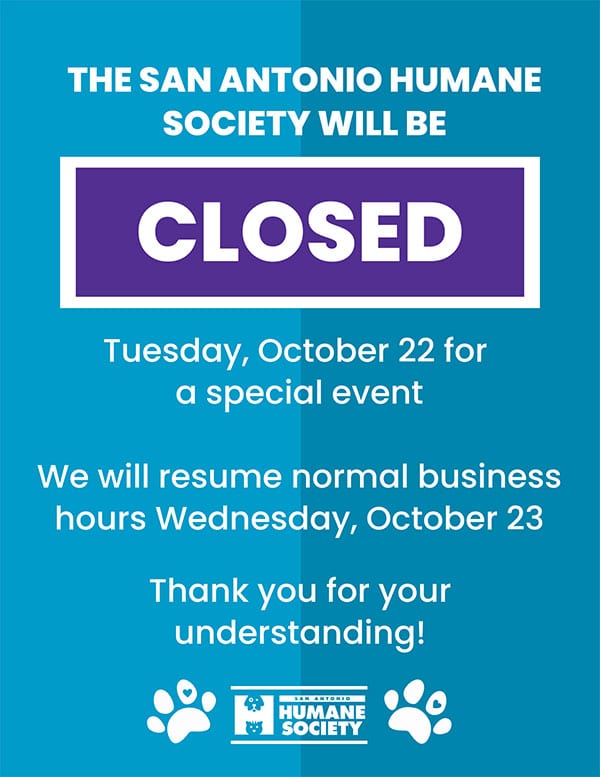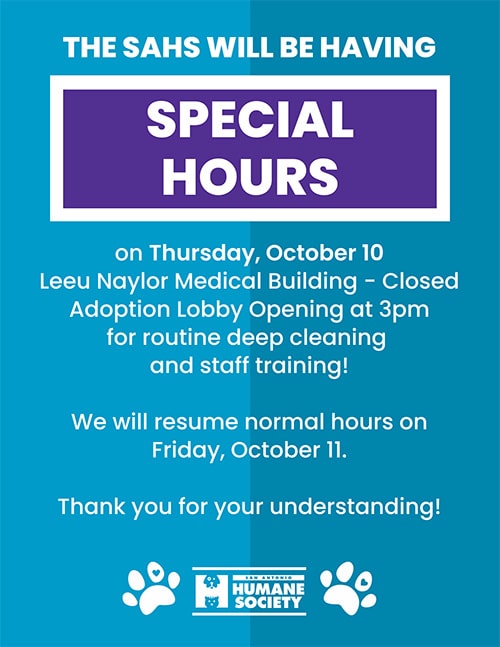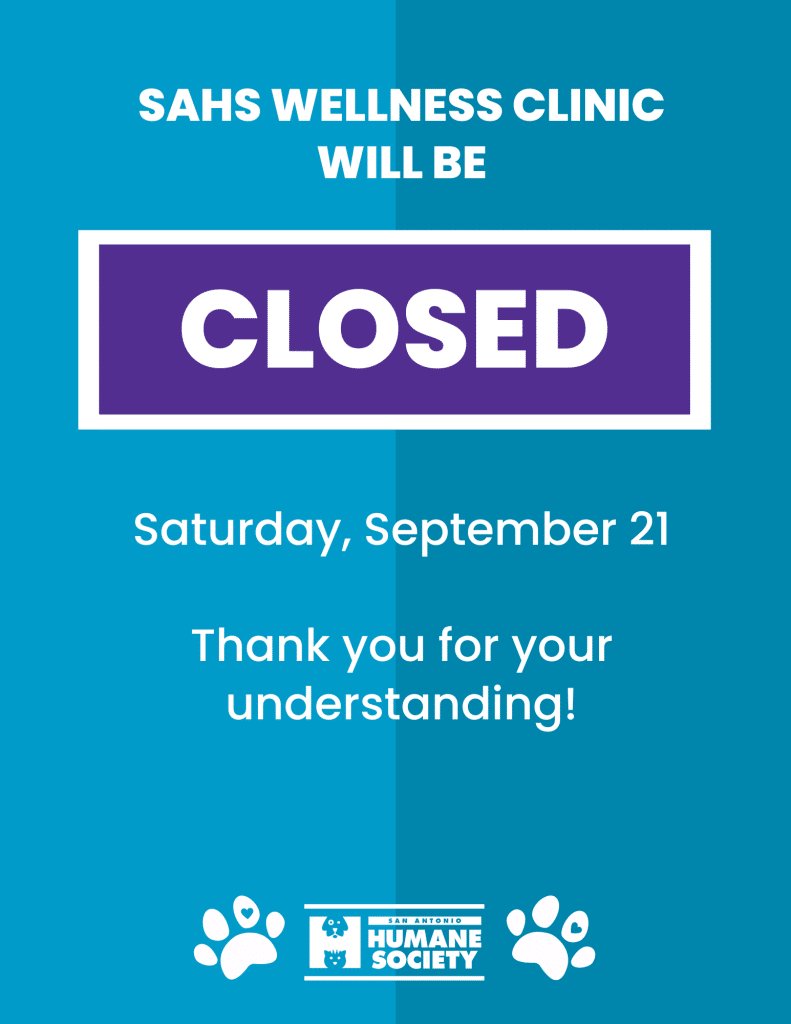What is heartworm disease?
Heartworm disease is a serious and potentially fatal disease that affects pets in many parts of the world. It is caused by worms (heartworms) that live in the heart, lungs and blood vessels of affected pets. These worms are transmitted as larvae from mosquitos. Worms start as larvae and within 6 months can grow up to 1 foot long. The migration of these worms through the body of infected pets can cause severe lung disease, heart failure and damage to other organs in the body. Heartworm disease affects dogs, cats and ferrets, but heartworms also live in other mammals, including wolves, coyotes, foxes, sea lions and—in very rare instances—humans. Because wild species such as foxes and coyotes live close to many urban areas, they are considered important reservoirs of the disease.
How is heartworm disease transmitted?
The mosquito is the “vector” of the heartworm life cycle. Adult female heartworms living in an infected dog, fox, coyote, or wolf produce microscopic baby worms called microfilaria. These babies circulate in the bloodstream and are picked up by mosquitos as they bite. When the infected mosquito bites another animal, the infective larvae are deposited onto the surface of the animal’s skin and enter the new host through the mosquito’s bite wound. It takes approximately 6 months for the larvae to mature into adult heartworms. Once mature, heartworms can live for 5 to 7 years in dogs and up to 2 or 3 years in cats. With each mosquito bite, more heartworm larvae can be deposited.
Signs of heartworm disease in dogs
In the early stages of the disease, many dogs show few symptoms or no symptoms at all. The longer the infection persists, the more likely symptoms will develop.
Here are some examples of some signs you may see if your dog is infected with heartworms:
• Mild persistent cough
• Reluctance to exercise
• Fatigue after moderate activity
• Decreased appetite/weight loss
• Heart failure
• Sudden collapse and death
• Labored breathing
• Pale gums
• Dark bloody or coffee-colored urine
Signs of heartworm disease in cats
Signs of heartworm disease in cats can be very subtle or very dramatic.
Symptoms may include:
• Coughing
• Asthma-like attacks
• Periodic vomiting
• Lack of appetite
• Weight loss
• Difficulty walking
• Fainting or seizures
• Fluid accumulation in the abdomen
• Sudden collapse or death
What is my pet’s risk for heartworm infection?
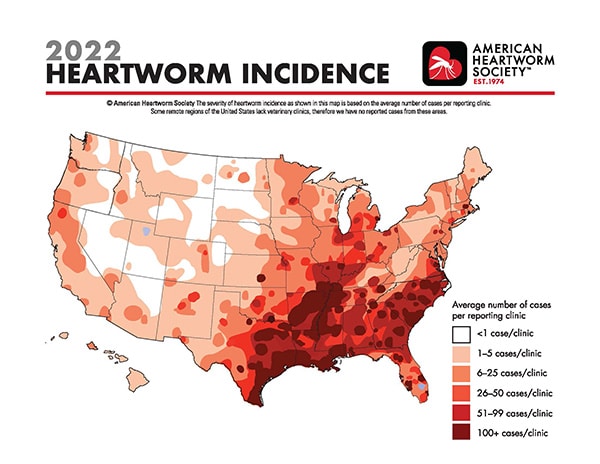
Heartworm disease has been diagnosed in all 50 states. Rates of infections to vary dramatically from year to year. Infected mosquitoes can come inside your house, so both outdoor and indoor pets are at risk.
The American Heartworm Society recommends that you “think 12:”
(1) Get your pet tested every 12 months for heartworm
(2) Give your pet heartworm preventive 12 months a year
Heartworm disease is a serious disease. The earlier it is detected, the better the chance your pet can recover. All dogs should be tested annually for heartworm infection, and this can usually be done during a routine veterinary visit for preventive care.
The following are guidelines on testing and timing:
• Puppies under 7 months of age can be started on heartworm prevention without a heartworm test but should be tested 6 months after your initial visit, tested again 6 months later and yearly after that to ensure they are heartworm-free.
• Adult dogs over 7 months of age and previously not on a preventive need to be tested prior to starting heartworm prevention. They also need to be tested 6 months and 12 months later and annually after that.
• Heartworms must be approximately 7 months old before the infection can be diagnosed.
Heartworm infection in cats is harder to detect than in dogs, because cats are much less likely than dogs to have adult heartworms. Testing cats for heartworms is more complicated than testing in dogs. Because there is no approved treatment for heartworm infection in cats, prevention is critical.
From the American Heartworm Society website guidelines:
“Many factors must be considered, even if heartworms do not seem to be a problem in your local area. Your community may have a greater incidence of heartworm disease than you realize—or you may unknowingly travel with your pet to an area where heartworms are more common. Heartworm disease is also spreading to new regions of the country each year. Stray and neglected dogs and certain wildlife such as coyotes, wolves, and foxes can be carriers of heartworms. Mosquitoes blown great distances by the wind and the relocation of infected pets to previously uninfected areas also contribute to the spread of heartworm disease (this happened following Hurricane Katrina when 250,000 pets, many of them infected with heartworms, were “adopted” and shipped throughout the country).
Annual testing is necessary, even when dogs are on heartworm prevention year-round, to ensure that the prevention program is working. Heartworm medications are highly effective, but dogs can still become infected. If you miss just one dose of a monthly medication—or give it late—it can leave your dog unprotected. Even if you give the medication as recommended, your dog may spit out or vomit a heartworm pill—or rub off a topical medication. Heartworm preventives are highly effective, but not 100 percent effective. If you don’t get your dog tested, you won’t know your dog needs treatment.”
Prevention of heartworm disease is by far the least expensive and safest recommendation.
For more information, please visit the American Heartworm Society website (images also from): www.heartwormsociety.org

